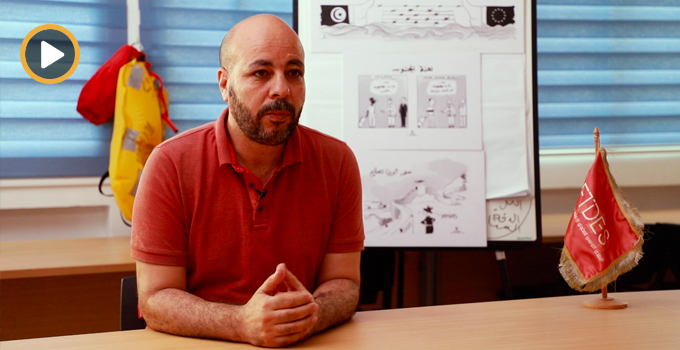Amnesty International calls for the immediate and unconditional release of trade union leaders and all those imprisoned for peacefully exercising their rights to freedom of expression and assembly, as their convictions were upheld by the Gafsa Appeal Court. Others should be retried in fair proceedings, in accordance with the fair trial guarantees enshrined in Tunisian law and Tunisia’s international obligations.
“We urge the Tunisian president to intervene and order the release of those sentenced for merely exercising their right to freedom of expression, in a peaceful manner,” said Malcolm Smart, Middle East and North Africa Programme Director.
On Wednesday the Gafsa Appeal Court upheld the convictions of 33 people who had lodged an appeal against their conviction and sentence in December 2008, in connection with the Gafsa protests. Most sentences were reduced on appeal, including from 10 years to eight years for trade union leaders Adnan Hajji and Bechir Laabidi. In addition, five others who were released after the decision of the court of first instance were subsequently convicted by the Appeal Court following an appeal by the prosecution. The 38 people were accused of leading the unrest against unemployment and high living costs in the first half of 2008 in the phosphate-rich Gafsa region in south-east Tunisia and charged with an with an array of offences, including “forming a criminal group with the aim of destroying public and private property” and “armed rebellion and assault on officials during the exercise of their duties”.
Bechir Laabidi, whose sentence was reduced from 10 to eight years on appeal, was transferred to hospital in Tunis as his health had severely deteriorated while in detention. Bechir Laabidi was present during the whole hearing which lasted all Tuesday day and night, with only two short intermissions, and which ended early this morning. The judgement was handed down early afternoon on Wednesday today. Lawyers present in court described to Amnesty International a marathon hearing which ended around 6:30 am, after a night of lawyers’ pleadings.
Amnesty International believes the appeal session was also marred with violations of fair trial standards and while the defence lawyers were able to present their arguments to the court, they were denied the right to call and cross examine witnesses. Demands of the lawyers that their clients be medically examined for traces of possible torture were rejected by the court and torture allegations disregarded.
“Yet again, the Appeal Court has failed to provide a remedy for government critics whose trial before the Lower Court was badly flawed and unfair,” said Malcolm Smart. “It is time that Tunisia’s courts give attention to upholding the basic guarantees accorded to all defendants under both Tunisian law and Tunisia’s international human rights obligations.”




iThere are no comments
Add yours